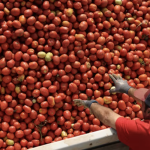Organic Dairy Conference highlights benefits of greater soil carbon
Added 2 years ago
By Bonnie Flaws
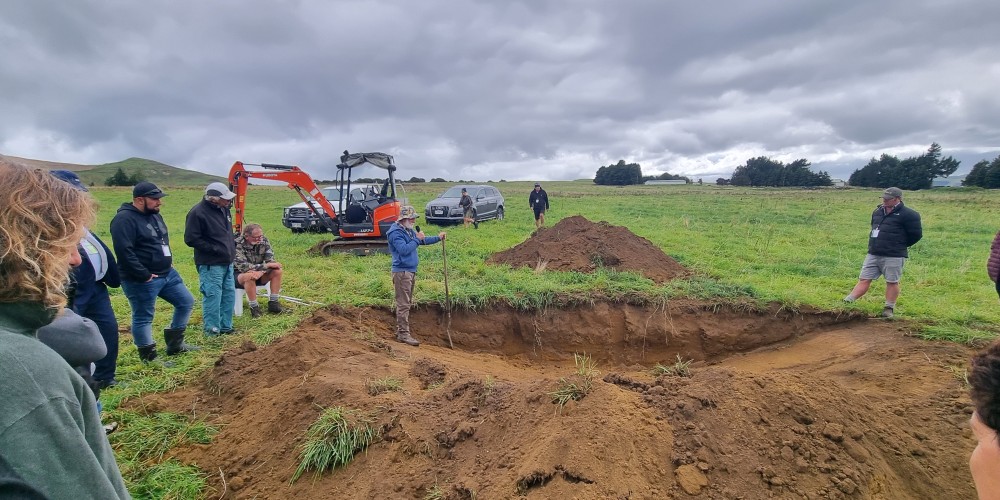
At this year’s Organic Diary Conference, an annual event put on by the Organic Dairy and
Pastoral Group (OGDP), the discussion was focused on the increasing pressure on
organic pastoralists due to the limited capacity for processing organic meat and dairy, as
well as how farmers can measurably increase soil carbon by adopting practices that
enhance soil health.
The conference was due to be held in Hawkes Bay last year, but Cyclone Gabrielle had
other ideas. Instead, the conference came to the bay in early April 2024, with about 50
attendees over two days.
The event was structured around an evening program of presentations and panel
discussions over locally sourced organic meals on both Friday and Saturday night, and a
field trip to Incline Farm owned by John Kamp on the Saturday.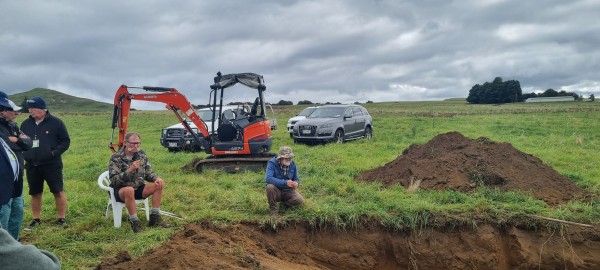
Attendees included a representative from meat processors ANZCO, Rick Carmont, chief
executive of the Organic Trade Association, Tiffany Tompkins, chief executive of Organic
Association of New Zealand and Ben Bostock, former owner of Bostock Brothers.
Hawkes Bay Future Farming Trust’s Phil Schofield presented on Friday night. “I talked
about the Trust and our mission and vision and our research projects that we have got
underway, mainly focused on soil carbon and why farmers should be encouraged to
improve soil health and thereby increase carbon sequestration on their farms.
“We just don’t have enough knowledge about it and that is what I talk about is the need for
much more testing and many more farms to be benchmarked and monitored. We need
more research on the subject, that is our main thrust and getting research funding for
another series of trials on pastoral farms,” he said.
Schofield has been monitoring Incline Farm for years, and the work provides a timeline to
show what can be achieved over a period of time when a farm changes its production
system focus on improving soil health. Such changes can be challenging to conventional
farmers but provide a viable way to sequester carbon in the soil - one of the largest carbon
sinks.
“You need to slow down on the use of soluble fertilisers, avoid using herbicides, fungicides
and insecticides. On a pastural system it’s not hard at all though. That’s why an audience
like the Organic Dairy and Pastoral Group would follow the argument that a simple step by
land managers would make a big difference.
“In the case of pastoral farming it’s a matter of having a diverse pasture sward - lots of
different species, a system that encourages worms and microbial activity, rather than just
having short roots. If you don’t disrupt them this is what you can achieve.”
Phil also reminded the audience that if all land managers and farmers agreed to improve
their soil health and thereby increase soil carbon by 0.4% per annum, that would balance
out all the extra emissions globally, according to the UNFCC.
OGDP trustee Phyllis Tichinin spoke enthusiastically about the gains made on Incline
farm. She had been involved in its early move away from conventional before Phil took
over as the farm consultant and worked in tandem with Soil Carbon NZs Paul Smith to run
a trial. Later John bought two other farms and proceeded to convert those to organic. This
provided a timeline of progress in the same soil, with the same drainage and the same
exposures, she said.
“They had a farm that had been on biological agriculture since 2007 and was converted to
organic in about 2014, and then two more farms, one of which was immediately converted
and one two or three years later. So, they had a timeline to see what happened when you
back off synthetic fertilisers and become organic or at least regenerative. And you can get
some pretty impressive soil carbon sequestration, at depth”, she said.
The results of the trial suggested that soil carbon was much deeper than previously
thought - with testing at 30cm, 60cm and 90cm. The initial findings on John Kamp’s three
farms soil carbon levels have put in doubt a consensus that New Zealand’s soil carbon
can’t be improved upon.
Willie White, an organic dairy farmer from Ashley Clinton in Central Hawkes Bay and
OGDP trustee, said the event was about supporting existing organic dairy farmers and
attracting new ones.
“Interest has been growing since we transitioned to regenerative/organic about four or five
years ago. There has been a bit of a step change and greater interest. Also, a lot of
conventional farmers are using some regenerative principles, but not organic. Some may
still be using a bit of nitrogen here and there.”
Willie says his own experience with making the transition has been more dollars in his
pocket.
“It was certainly the right thing for us, it has made us far more resilient in terms of our
ability to handle all the external out of our control factors which get thrown at us every
year. Weather and markets - all the things that make farming hard. We’ve got in a position
to handle those better and we have improved our profitability.”
This is largely due to having far least costs in the business, and a more consistent milk
price payout, since organic milk isn’t quite as vulnerable to comedy cycles.
“While the general, wider industry was facing spiraling costs and a reducing commodity
price it is the opposite for us. Costs remained the same and our price held up. Then we
had the cyclone like everyone else, but it didn’t hurt us as much”.
Willie said the conference was a success, and while there have been more people
attending in the past, the way it was structured made it very useful and enjoyable and all
the presentations were interesting. He echoed Phil’s call for more research.
“We need to be spending our time on this stuff because no-one else wants to be doing it.
Once we can find proof of soil carbon sequestration it will actually get a lot of us farmers in
positions where we have got tradable carbon in a voluntary market. Then it doesn’t matter
what the government is doing.”
Join the conversation
Be the first to leave a comment.
Leave a comment
All comments are reviewed before they are published on the website. Your email address will not be published.
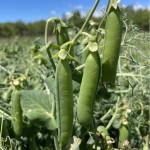
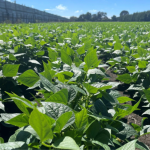

Community Engagement and Knowledge Sharing Strengthen the Carbon Positive Project
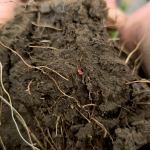
Are We Changing Soil Carbon Yet? Three Years In, the Jury’s Still Out
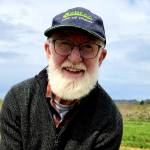
Farewell to Trustee Phil Schofield – A Foundational Leader of the HBFFCT
